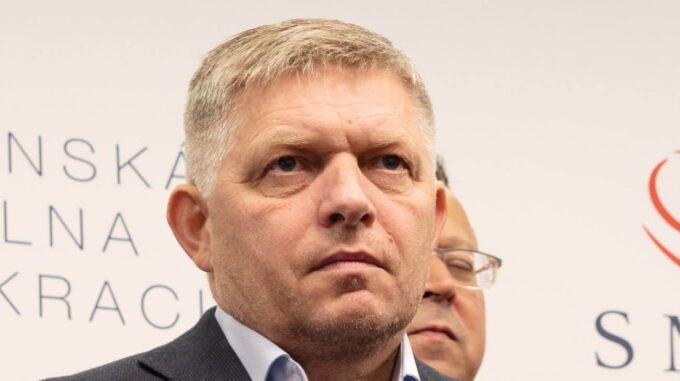Complications in Diplomatic Negotiations: Fico Accuses Estonia of Obstructing His Visit to Moscow

Slovak Prime Minister Robert Fico officially stated that his intention to travel to Moscow remains unchanged, despite significant efforts by Estonian aviation and diplomatic authorities aimed at preventing his planned trip. This statement came in response to recent information he shared on his Facebook social media platform. According to the Slovak Prime Minister, on the evening of May 7, he received a message from Tallinn indicating the impossibility of overflight of the aircraft he intended to use for the visit to the Russian capital. Fico described this as a “deliberate and planned” act, which he considers an attempt to knowingly hinder his diplomatic mission. “A few minutes ago, I learned that I was denied overflight permission through Estonia, which is an obvious attempt to thwart my visit. This disrupts our entire diplomatic schedule and jeopardizes important bilateral meetings planned for tomorrow,” Fico emphasized. In his statement, he assured that his protocol and diplomatic services will do everything possible to enable him to reach Moscow and participate in the scheduled events. He noted that the planned meetings are of exceptional importance for the development and strengthening of Slovak-Russian relations, and he has no intention of canceling or postponing them. It is worth noting that this visit holds special significance not only for the bilateral relations between Slovakia and Russia but also within the broader European context. During this trip, Fico and Serbian President Aleksandar Vučić are the only European leaders invited to take part in celebratory events in Moscow marking Victory Day on May 9, underscoring the particular role of these countries in current political and diplomatic processes. Regarding the official itinerary, it does not include Fico's participation in the large-scale parade on Red Square, indicating caution and possibly an attempt to avoid conflict scenarios during media coverage of this visit. According to diplomatic sources, Moscow expects the Prime Minister’s visit under any circumstances, considering the diplomatic weight and political context of this trip. Meanwhile, the reaction from Estonia remains secret or at least unofficially unconfirmed; however, there are already assumptions that this incident might bear signs of political pressure or even conflict, characteristic of tense international relations between the West and Russia. Analysts suggest that this situation may serve as yet another confirmation of the complexities involved in diplomatic contacts in today’s political environment, where even minor obstacles can have far-reaching consequences. Fico himself emphasizes that his goal remains unchanged — he aims to do his job and support important diplomatic ties despite numerous difficulties surrounding this event. Source: "European Pravda"

